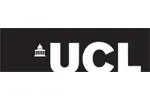We're moving! This site will be relocating to goingto.university in 2026. Please update your bookmarks to the new address.


the United Kingdom
University College London (UCL)| The award | How you will study | Study duration | Course start | Domestic course fees | International course fees |
|---|---|---|---|---|---|
| MA | Full-time, Part-time | 1 - 2 year | October | - | - |
This masters degree will:
This masters degree provides the opportunity to:
Literacy consultants, advisers and coordinators; special educational needs coordinators (SENCOs); and teachers (including newly qualified teachers) wishing to improve their understanding of literacy learning. The MA will be particularly useful for those working in Key Stages 1 and 2, but those working with older children, including in secondary schools and the post-compulsory sector, may also apply.
Entry requirementsA good honours degree in a relevant subject or the equivalent.
Core topicsBy coursework assignments and a 20,000-word dissertation or 10,000-word report.
AttendanceFace-to-face evening sessions.
Where do our students go?Graduates of this masters degree are currently working as:
Core modules
Below are some suggested courses at other providers that you may also be interested in:
Graduate Diploma of Engineering (Civil: Structural) Graduate Diploma
Engineering Institute of Technology
Find out moreGraduate Diploma in Clinical Nursing Graduate Diploma
Australian Catholic University (ACU)
Find out moreGraduate Diploma in Residential Work (Children's) Graduate Diploma
Kingston University London
Find out moreGraduate Diploma of Counselling Graduate Diploma
Australian College of Applied Psychology (ACAP)
Find out moreIf you do not meet the entry requirements for this course then consider one of these postgraduate preparation courses from another institution:
Graduate Diploma of Engineering (Civil: Structural)
Engineering Institute of Technology
Find out moreThere are 633 other courses listed from University College London (UCL). A selection of these are displayed below:
Join the StudyLink email list and never miss a chance to turn your study abroad dreams into reality!
